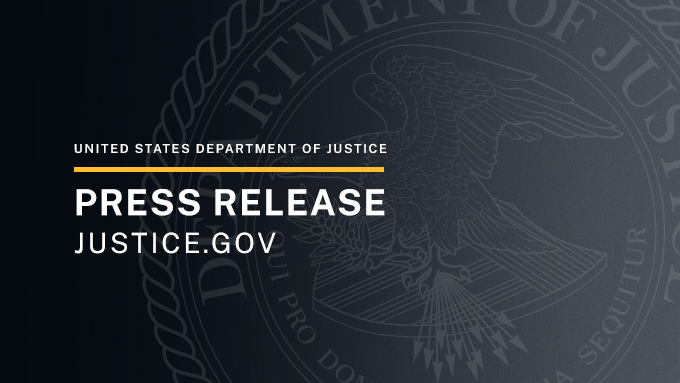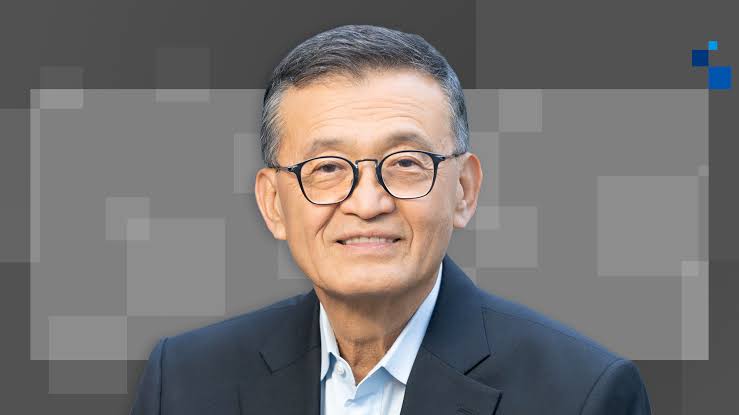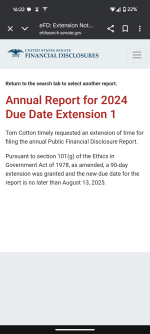(Sorry it's Reuters again) -
- Senator Cotton sent a letter to Intel's board chair questioning CEO's ties to China
- Cotton questioned what Intel's board knew about subpoenas to Cadence
- Letter asks board chair about Tan's investment disclosures due to Secure Enclave involvement
SAN FRANCISCO, Aug 6 (Reuters) - U.S. Republican Senator Tom Cotton sent a letter to Intel's board chair on Wednesday with questions about the chipmaker's new CEO Lip-Bu Tan's ties to Chinese firms and a recent criminal case involving his former company Cadence Design
Writing to "express concern about the security and integrity of Intel's operations and its potential impact on U.S. national security", Cotton asked in the letter to Intel chairperson Frank Yeary whether the company's board was aware of the subpoenas sent to Cadence during Tan's time there as CEO before Intel hired him. Cotton asked what measures were taken to address those concerns.
He also asked whether Intel's board required Tan to divest from chip firms in China linked to the Chinese military or Communist Party, and if Tan adequately disclosed other ties to Chinese companies due to Intel's involvement in the
Secure Enclave program, an initiative designed under the Biden administration to ensure a secure supply of microelectronics for defense.
Because of Intel getting federal funding under the initiative, Cotton questioned Yeary in the letter about Tan's disclosures related to investment, professional roles or other ties to Chinese companies.
"Intel is required to be a responsible steward of American taxpayer dollars and to comply with applicable security regulations," Cotton wrote. "Mr. Tan's associations raise questions about Intel's ability to fulfill these obligations."
In a statement, an Intel spokesperson said, "Intel and Mr. Tan are deeply committed to the national security of the United States and the integrity of our role in the U.S. defense ecosystem." The company said it would address the matters in the letter with the Senator.
In April, Reuters
reported Tan - himself or through venture funds he has founded or operates - has invested in hundreds of Chinese companies, some of which are linked to the Chinese military. The Intel CEO invested at least $200 million in hundreds of Chinese advanced manufacturing and chip firms between March 2012 and December 2024, Reuters found.
A source familiar with the matter had at the time told Reuters that Tan had divested from his positions in entities in China, without providing further details. Chinese databases reviewed by Reuters at the time had listed many of his investments as current, and Reuters was at the time unable to establish the extent of his divestitures.
CADENCE REACHES SETTLEMENTS
It is not illegal for U.S. citizens to hold stakes in Chinese companies, even those with ties to the Chinese military, unless those companies have been added to the U.S. Treasury's Chinese Military-Industrial Complex Companies List, which explicitly bans such investments. Reuters in April had found no evidence that Tan at the time was invested directly in any company on the U.S. Treasury's list.
Separately, last week Cadence Design agreed to plead guilty and pay more than $140 million to resolve charges for selling its chip design products to a Chinese military university, Reuters
reported. The institution was believed to be involved in simulating nuclear blasts.
In a filing with the Securities and Exchange Commission, Cadence said it was "pleased" to reach settlements with the Justice and Commerce departments.
Tan ran Cadence as CEO from 2008 through 2021 and was executive chairman until May 2023. The sales to Chinese entities occurred under his leadership at Cadence, which makes design software and other tools used to create chips.

 www.justice.gov
www.justice.gov



